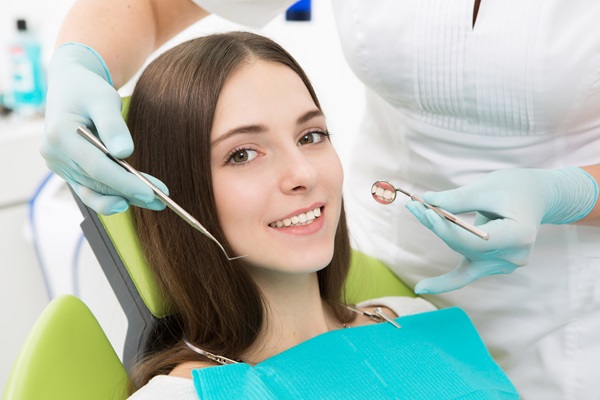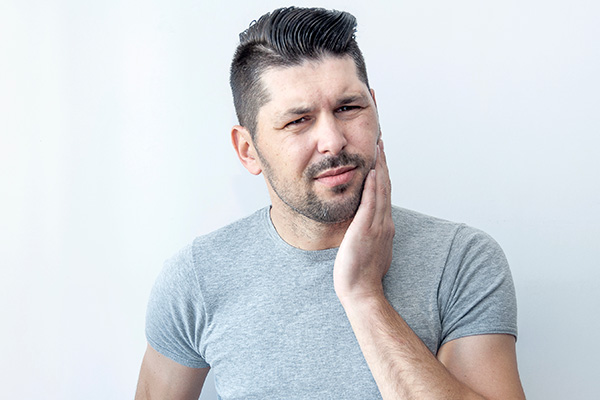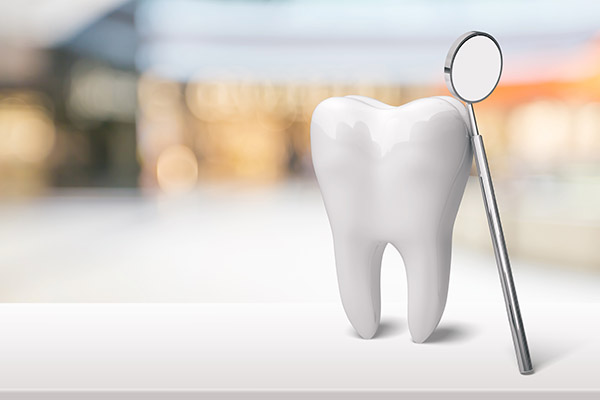Family-Friendly Dentistry: Preventive Dentistry Tips

Preventive dentistry can help you avoid issues like tooth decay and gum disease, which are the most common issues that dentists deal with. Keeping your teeth and gums healthy starts with having a consistent oral hygiene routine.
Many of the dental issues that you might find yourself dealing with start with the bacteria in your mouth. These microorganisms transform the sugars in food particles into acids that damage teeth. They also form plaque, a sticky substance that houses bacteria and the acids that they make.
Plaque hardens into a substance called tartar when it is left on teeth for more than 24 hours. At this point, it cannot be removed by brushing or flossing, so it serves as a haven for oral bacteria and their acids. Tartar can also make its way below the gum line, infecting the tissues there.
Preventive dentistry tips from our dentist
Here are a few tips from our preventive dentistry dentist about how to keep the gums and teeth healthy.
1. Brush twice every day
Brushing at least two times a day gets rid of bacteria and the acids that they make before they cause lasting damage to the teeth. It is a foundation of preventive dentistry. The most crucial time to brush teeth is right before going to bed. Bacteria, plaque, and acids build up on teeth during the day, and the mouth is more vulnerable during sleep due to reduced saliva production. Saliva helps protect the teeth and gums by washing away acids and bacteria. Brushing twice daily also reduces tartar buildup on teeth, protecting against gum disease and tooth decay.
2. Floss once a day
Flossing enables patients to clean the tight spaces between teeth that a toothbrush cannot reach. Brushing regularly but not flossing only provides partial protection. Plaque can still build up in interdental spaces, making teeth vulnerable to decay.
3. Use an antibacterial mouthwash
An antibacterial mouthwash cleans the spots that brushing and flossing miss. It can also help keep the bacteria population in the mouth in check. Certain mouthwashes contain fluoride, so they can help strengthen enamel weakened by acids in the mouth.
4. Go to biannual dental checkups
Regular trips to the dentist assist in keeping the mouth healthy. These appointments give dentists a chance to evaluate the patient and address any issues that they notice. Dentists also use these treatments to perform preventive dentistry treatments, like teeth cleanings and fluoride treatments.
A teeth cleaning involves the dentist using a scaler to remove plaque and tartar deposits from teeth surfaces. It is a painless procedure and protects patients from tooth decay and gum disease. Teeth cleanings can also help remove surface stains on teeth because these stains tend to form on tartar deposits.
5. Avoid sugary foods and beverages
These include sports drinks, energy drinks, sodas, and fruit juices. Patients should drink water instead. Use a straw when drinking sugary beverages to reduce contact with the teeth. Oral bacteria feed on sugars in the mouth and convert them into acids that eat away at teeth structures. Constantly snacking on sugar-rich foods and beverages gives oral bacteria the fuel that they need to eat away at teeth structures.
Limit snacks throughout the day, and choose healthy options like vegetables, fruits, or cheese. If sugary snacks are consumed, the mouth should be rinsed out with water immediately afterward.
6. Chew sugarless gum
Patients should chew sugarless gum or sugarless hard candy after meals if they cannot brush their teeth right away. This increases saliva flow, which helps prevent cavities by washing away food and neutralizing the acids produced by bacteria in the mouth. Teeth are most vulnerable to decay when saliva flow is reduced, so chewing on sugarless gum can keep saliva flowing throughout the day.
7. Maintain good habits
Bad habits like biting on fingernails can damage teeth enamel, reducing the protection that teeth have against acids in the mouth. If a patient has a habit of gritting or grinding their teeth (bruxism), they should talk to the preventive dentistry dentist about getting a mouthguard.
8. Use fluoridated toothpaste
Fluoride is a mineral that helps safeguard teeth from decay. Most toothpaste brands contain fluoride, but some have higher concentrations than others. Look for the American Dental Association's (ADA) Seal of Acceptance on the packaging, which indicates that the product has met ADA standards for safety and effectiveness.
Preventive dentistry saves you money
Taking good care of your teeth and gums can lead to lower dental bills in the future. You can also avoid issues like toothaches caused by common oral problems, such as tooth decay. Call or stop by our Hackensack clinic to set up an appointment.
Request an appointment here: https://www.smilebeautification.com or call Precision Smiles. at (201) 204-1355 for an appointment in our Hackensack office.
Check out what others are saying about our dental services on Yelp: Preventative Dental Care in Hackensack, NJ.
Recent Posts
Looking for information on preventive dentistry? Read on to learn more. A good preventive dentist can save you money on significant tooth problems, pain, and costly treatments in the future. All treatments or procedures that prevent tooth decay, tooth damage, and gum disease fall under preventive dentistry. Fortunately, when preventive dentistry is incorporated into daily…
Seeing a preventive dentist, which is a dental health professional who focuses on the prevention of oral health issues, is an essential part of overall oral health maintenance. To help their patients keep their teeth and gums in good condition, a preventive dentist provides a range of treatments.The following are some services that a preventive…
The purposes of a routine dental exam and cleaning are to determine the overall status of the patient's oral health and to put together a treatment plan to address any concerns (or potential concerns) that are detected. Although every dentist has their own process that they use, this review provides a step-by-step approximate guide to…
Are you due for a dental check-up? Has it been a while? You may not know what to expect if you have not had a dental check-up in a long time. Read on to discover what happens during a typical dental check-up. Oral health is important, not only for your mouth but for your overall…


